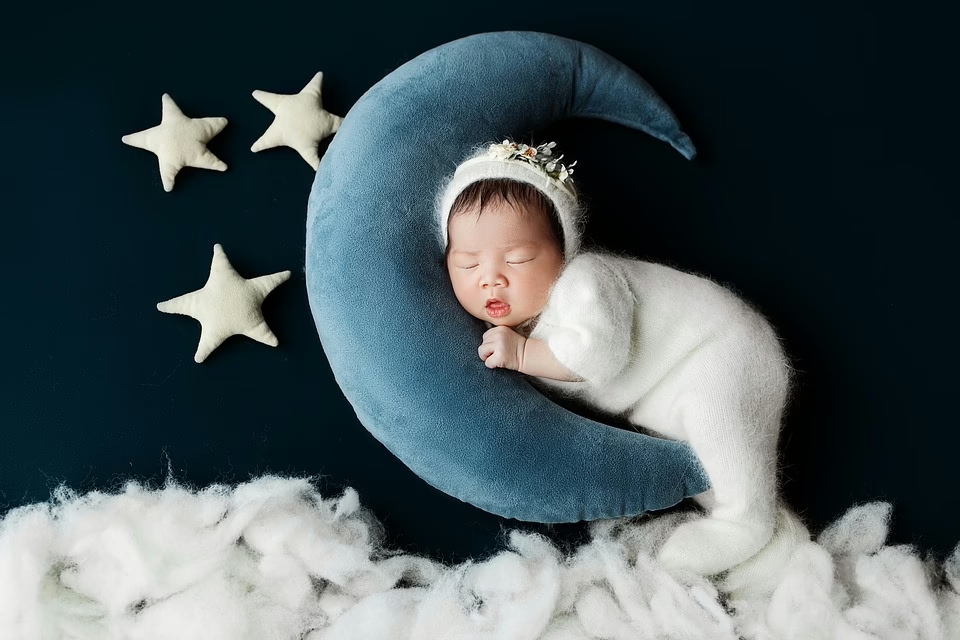Dream Big: The Importance of Sleep for Creativity and Innovation
Introduction
In our fast-paced, productivity-driven society, sleep often takes a backseat to the myriad demands of daily life. However, research increasingly indicates that sleep plays a pivotal role not just in our health, but also in our creativity and innovation. The old adage “you need to sleep on it” carries more weight than we might realize, as sleep doesn’t merely serve to rejuvenate our bodies; it also fosters cognitive processes essential for creative thinking. This article delves into the complex relationship between sleep and creativity, exploring how rest can serve as a catalyst for innovation.
The Science of Sleep
Before we can appreciate the ways in which sleep fosters creativity, it’s vital to understand its various stages and functions. Sleep is divided into two primary types: Rapid Eye Movement (REM) sleep and Non-Rapid Eye Movement (NREM) sleep. NREM sleep further includes three stages, moving from light sleep to deep sleep. Each stage serves distinct purposes essential for mental and physical restoration.
-
NREM Sleep: This phase contributes to physical health, repair, and memory consolidation. Stage 3, also known as deep sleep, is particularly important for physical repair and immune system function.
-
REM Sleep: This stage is associated with dreaming and plays a crucial role in emotional regulation, creativity, and problem-solving. During REM sleep, the brain processes emotions and experiences, weaving them into cohesive narratives that can enhance creative thinking.
Studies indicate that both REM and NREM sleep are integral to various cognitive functions, including memory consolidation, learning, and innovative thought processes. It is in this context that we can examine the role of sleep in enhancing creativity.
Sleep and Creativity
Memory Consolidation
One of the most well-documented benefits of sleep is its role in memory consolidation. Sleep helps us organize and solidify new information, allowing us to retrieve and utilize it later. This process is particularly relevant to the creative mind; the ability to connect disparate pieces of knowledge can lead to innovative ideas.
- Example: A study by Walker & Stickgold (2006) revealed that individuals who had a good night’s sleep after learning a new task performed significantly better compared to those who remained awake. This underscores the idea that adequate sleep bolsters memory retention, which is crucial for creative endeavors.
Incubation
The phenomenon known as “incubation” illustrates how stepping away from a problem to engage in unrelated activities (often including sleep) can lead to bursts of creativity. During sleep, subconscious processes work to synthesize information, often leading to sudden insights or solutions upon waking.
- Example: The famous chemist August Kekulé reportedly discovered the structure of the benzene molecule after dreaming about a snake biting its own tail. This anecdotal evidence highlights how sleep can serve as a fertile ground for creative synthesis.
Emotional Regulation
Creativity is deeply connected to emotional states. A well-rested individual is more likely to experience stable moods, fostering an environment conducive to creative thinking. Sleep deprivation, conversely, has been linked to increased emotional reactivity, which can stifle innovative thought.
- Research Findings: A study by Goldstein & Walker (2014) indicates that individuals predisposed to creative thinking benefit from adequate sleep, as it allows them to process emotions effectively and channel them into creativity. Conversely, sleep deprivation can lead to negative emotional states that inhibit innovative problem-solving.
Divergent Thinking
Divergent thinking—the ability to generate multiple possible solutions for a given problem—often thrives during states of rest. This cognitive flexibility is essential for innovation, allowing individuals to think outside the box.
- Study Insights: Research by Dr. Amy Whitaker found that participants who took naps exhibited higher levels of divergent thinking compared to those who remained awake. This reflects a growing body of evidence highlighting the beneficial effects of sleep on creative problem-solving.
The Impact of Sleep Deprivation
Cognitive Impairment
Sleep deprivation can have severe consequences on cognitive functions, impairing memory, attention, and decision-making abilities. A fatigued brain is less capable of forming novel connections that drive creativity.
- Statistics: According to the Centers for Disease Control and Prevention (CDC), approximately one-third of American adults report getting less than the recommended seven hours of sleep per night. This lack of sleep may significantly impact creative potential on a population level.
Short- and Long-term Effects
The repercussions of sleep deprivation extend beyond immediate cognitive impairments. Chronic sleep deprivation is linked to long-term mental health issues, including anxiety and depression—conditions that can impede creative output.
- Research Data: A meta-analysis conducted by Lo et al. (2016) found that sleep deprivation negatively influences decision-making processes, further illustrating the connection between sleep, cognitive function, and creativity.
Sleep Hygiene for Enhanced Creativity
Establishing a Routine
Creating a consistent sleep routine can significantly impact sleep quality. This involves going to bed and waking up at the same time each day, even on weekends, to regulate the body’s internal clock.
Optimizing Sleep Environment
- Darkness: Making the bedroom dark can promote deeper sleep. Consider blackout curtains or sleep masks.
- Quiet: Minimizing noise exposure through earplugs or white noise machines can enhance sleep quality.
- Comfort: Invest in a comfortable mattress and pillows to improve sleep quality.
Limiting Screen Time Before Bed
Blue light emitted by screens interferes with melatonin production, making it challenging to fall asleep. Consider limiting screen use at least an hour before bed to promote better sleep.
Napping: A Creative Superpower
In addition to nightly sleep, napping can serve as a powerful tool for enhancing creativity. Short naps can help refresh the mind, boost mood, and improve cognitive performance, offering a respite that encourages creative thinking.
Power Naps
Research indicates that even short naps (10-20 minutes) can lead to increased alertness and improved cognitive function, supporting the idea that brief rest can work wonders for creative output.
Longer Naps
Longer naps (60-90 minutes) allow individuals to experience REM sleep, potentially leading to insightful dreams that can inspire creative breakthroughs.
Real-World Examples of Sleep and Innovation
Numerous outstanding innovators have championed the importance of sleep in their creative processes. These individuals serve as compelling examples of how prioritizing rest can yield remarkable results:
-
Thomas Edison: Known for his innovative spirit, Edison would often take naps in between work sessions to recharge his brain and sustain his creativity.
-
Salvador Dalí: The surrealist painter utilized sleep as a source of inspiration, employing a technique called “slumber with a key,” where he would hold a key as he drifted off to sleep, awakening with fresh ideas.
-
Albert Einstein: Einstein famously valued a good night’s sleep, stating that if he had only one hour to solve a problem, he would spend the first 55 minutes thinking about the problem and the last five minutes sleeping.
Conclusion
In an age where hustle culture often glorifies sleeplessness and overwork, it is crucial to recognize the vital role sleep plays in fostering creativity and innovation. Adequate rest enhances memory consolidation, emotional regulation, and cognitive flexibility, all essential components of creative thought. To maximize creative potential, individuals should prioritize quality sleep and incorporate strategic napping into their routines.
By understanding the connection between sleep and creativity, we can shift our perspectives on work, rest, and the power of dreams. In the quest for innovation, perhaps the most valuable lesson is to dream big, both while awake and asleep.
References
- Walker, A., & Stickgold, R. (2006). Sleep-dependent learning and memory consolidation. Nature Reviews Neuroscience, 7(10), 679-695.
- Goldstein, A. N., & Walker, M. P. (2014). The role of sleep in emotional memory processing. Neuroscience & Biobehavioral Reviews, 44, 13-25.
- Whitaker, A. (2021). The relationship between naps, cognitive performance, and creativity. Journal of Sleep Research.
Modern Footnote Source: The article references various scholarly articles and research to substantiate its claims regarding the importance of sleep for creativity and innovation. As research in this field evolves, continued exploration into sleep’s impact on cognitive functioning will further illuminate its essential role.


























Add Comment